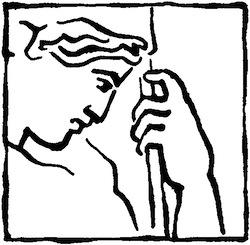Deze titel kan niet worden besteld.
Deze titel kan nu niet besteld worden. Probeer het later opnieuw
Deze titel kan nu niet besteld worden. Probeer het later opnieuw
Titel
Wohltätigkeit und Armenpflege im vorchristlichen Altertum. Ein Beitrag zum Problem 'Moral und Gesellschaft'.
Schrijver
BOLKESTEIN, H.,
Uitgever
Prijs
€ 50,00
Bijzonderheden
Oosthoek, Utrecht, 1939. XVI,492p. Cloth. Cover a bit stained
Meer info
Spine yellowed. Signature and date on free endpaper.
Scrinium
Aalten 

Wij beschrijven de staat van het boek. Wanneer er geen bijzonderheden vermeld worden mag u ervan uitgaan dat het boek zich in goede -tweedehands- staat bevindt.
Wij zijn gespecialiseerd in boeken met betrekking tot de klassieke oudheid: teksten, commentaren, vertalingen, boeken over (klassieke) (kunst)geschiedenis en archeologie, filosofie, mythologie en taalkunde, over het vroege christendom en de receptie van de klassieken in Middeleeuwen en Renaissance.
